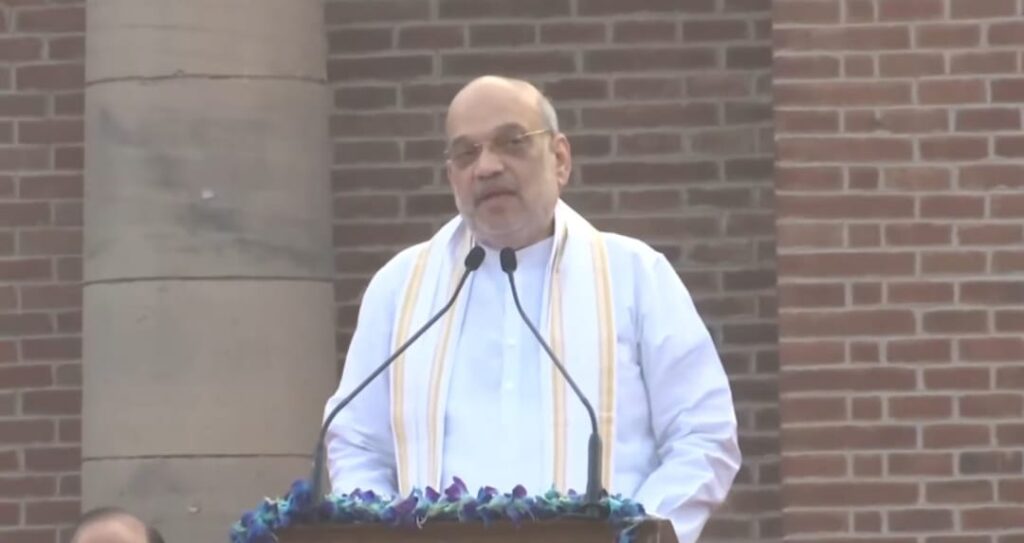Canada Names Amit Shah in Alleged Plot Against Sikh Activists: Diplomatic Tensions Escalate
1. Allegations Against Indian Home Minister Amit Shah
Canadian officials recently accused Indian Home Minister Amit Shah of orchestrating a campaign aimed at Sikh activists in Canada, supposedly because of their associations with separatist movements। Shah is accused of ordering the actions that resulted in the murder of British Columbia’s renowned Sikh leader Hardeep Singh Nijjar and allegedly other targeted actions against members of the Sikh separatist movement।
2. Assassination of Hardeep Singh Nijjar
These allegations are centered around the murder of a Canadian citizen and Sikh community leader named Nijjar in June 2023। The murder happened in Canada, which caused anger and questions about foreign interference in Canadian domestic affairs। Canadian officials argue they have evidence connecting Indian officials and criminal gangs to Nijjar’s murder and assert that this event forms part of a larger, coordinated effort by the Indian government to silence separatist voices abroad Amit Shah
3. Involvement of Criminal Syndicates
Canadian intelligence sources say that the Lawrence Bishnoi gang, which is famous for its presence and operations in India and Canada, allegedly worked with Indian officials to plan these attacks that were intended to happen। According to Canadian sources, Indian diplomats are thought to have provided intelligence, allowing gang members to spot and target Sikh activists। This alleged collaboration between government officials and criminal groups raises serious concerns regarding India’s influence in Canada।
4. Evidence Presented by Canada
Canada has reportedly presented what it considers “irrefutable evidence” of India’s involvement in these violent incidents, including specific details on the coordination between Indian officials, intelligence operatives, and the Bishnoi gang. Canadian officials tried to get India to cooperate to end the violence when this evidence was shared with Indian National Security Adviser Ajit Doval during a confidential meeting in Singapore। India has reportedly denied any involvement in Nijjar’s murder or any related violent incident, despite Canada’s request for transparency and cooperation।
5. Diplomatic Tensions and Expulsion of Diplomats
India-Canada relations have worsened due to the allegations, which have resulted in a number of diplomatic escalations। Multiple Indian diplomats were expelled from Canada shortly after the evidence was presented। India expelled Canadian diplomats in response, which marked a drastic decline in diplomatic relations between the two countries। The removal of diplomats has hindered communication, making diplomatic efforts to resolve the issue more difficult।Amit Shah
6. India’s Response to Allegations
India has repeatedly denied its involvement in any of the alleged incidents and continues to deny Canada’s claims। India’s response, which was mainly communicated by Doval during the Singapore meeting, was to deny any connection to the murder of Nijjar and other alleged violent incidents against Sikh separatists in Canada। Moreover, India has not publicly responded to Canada’s accusations; instead, it has maintained that their diplomats’ actions are in compliance with international conventions।
7. Potential Impact on Global Relations
This conflict affects more than just India and Canada because it raises questions about foreign interference, human rights, and international law। If the allegations are true, they could cause more international scrutiny and pressure on India for its handling of separatist movements abroad। Canada’s accusations, on the other hand, may strain its own diplomatic status if there is no definitive evidence। Many countries are closely monitoring the progress because the outcome could set precedents for handling international dissenting communities।
The present situation highlights the sensitive nature of state surveillance, international communities’ protection, and the increasingly complexity of transnational politics।


